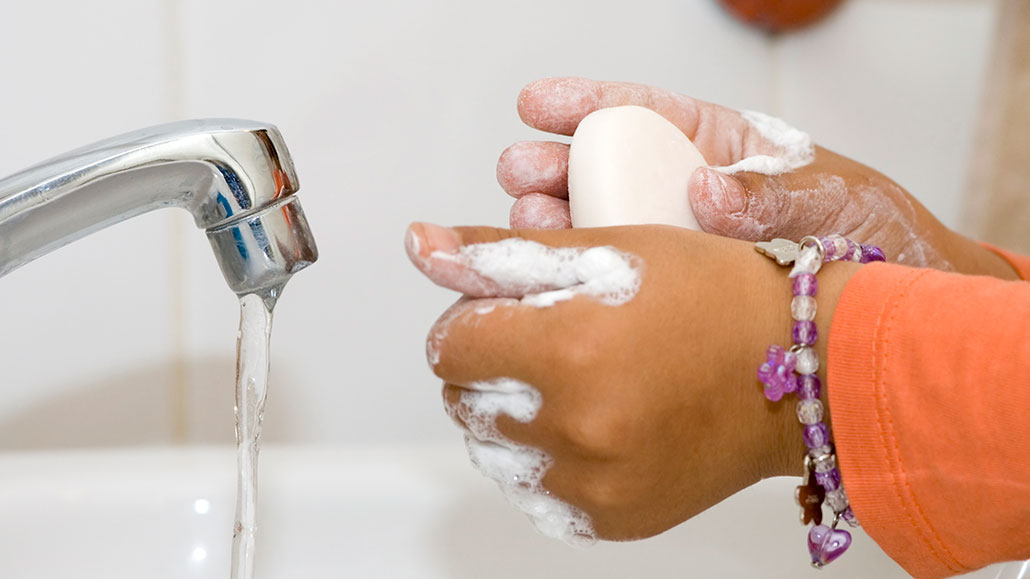alkaline: An adjective that describes a chemical that produces hydroxide ions (OH-) in a solution. These solutions are also referred to as basic — as in the opposite of acidic — and have a pH above 7.
astronaut: Someone trained to travel into space for research and exploration.
chemical: A substance formed from two or more atoms that unite (bond) in a fixed proportion and structure. For example, water is a chemical made when two hydrogen atoms bond to one oxygen atom. Its chemical formula is H2O. Chemical also can be an adjective to describe properties of materials that are the result of various reactions between different compounds.
concrete: To be solid and real. (in construction) A simple, two-part building material. One part is made of sand or ground-up bits of rock. The other is made of cement, which hardens and helps bind the grains of material together.
fat: A natural oily or greasy substance occurring in plants and in animal bodies, especially when deposited as a layer under the skin or around certain organs. Fat’s primary role is as an energy reserve. Fat also is a vital nutrient, though it can be harmful if consumed in excessive amounts.
ion: An atom or molecule with an electric charge due to the loss or gain of one or more electrons.
Mars: The fourth planet from the sun, just one planet out from Earth. Like Earth, it has seasons and moisture. But its diameter is only about half as big as Earth’s.
metal: Something that conducts electricity well, tends to be shiny (reflective) and malleable (meaning it can be reshaped with heat and not too much force or pressure).
pH: A measure of a solution’s acidity or alkalinity. A pH of 7 is perfectly neutral. Acids have a pH lower than 7; the farther from 7, the stronger the acid. Alkaline solutions, called bases, have a pH higher than 7; again, the farther above 7, the stronger the base.
potassium: A chemical element that occurs as a soft, silver-colored metal. Highly reactive, it burns on contact with air or water with a violet flame. It is found not only in ocean water (including as part of sea salt) but also in many minerals.
salt: A compound made by combining an acid with a base (in a reaction that also creates water). The ocean contains many different salts — collectively called “sea salt.” Common table salt is a made of sodium and chlorine.
solution: A liquid in which one chemical has been dissolved into another.

